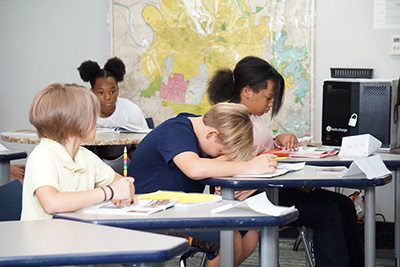Addressing Challenging Behaviors (Part 1, Elementary): Understanding the Acting-Out Cycle
Initial Thoughts
Jot down your Initial Thoughts about the Challenge:
 What should educators understand about challenging behaviors?
What should educators understand about challenging behaviors?
How can educators recognize and intervene when student behavior is escalating?
When you are ready, proceed to the Perspectives & Resources section.